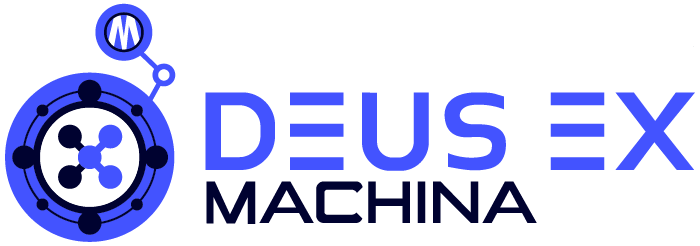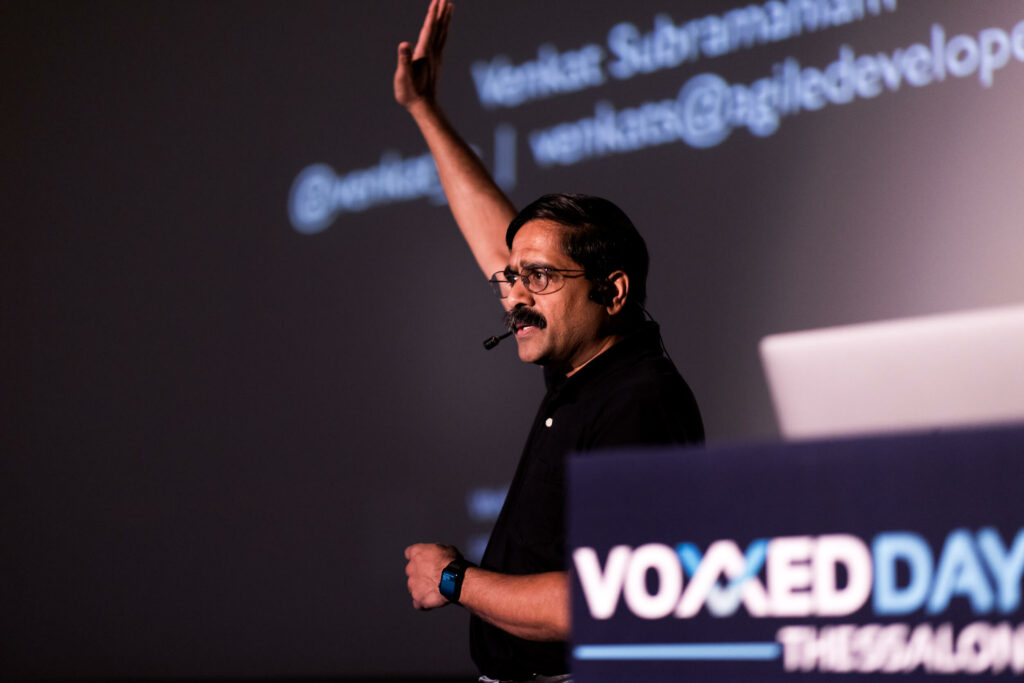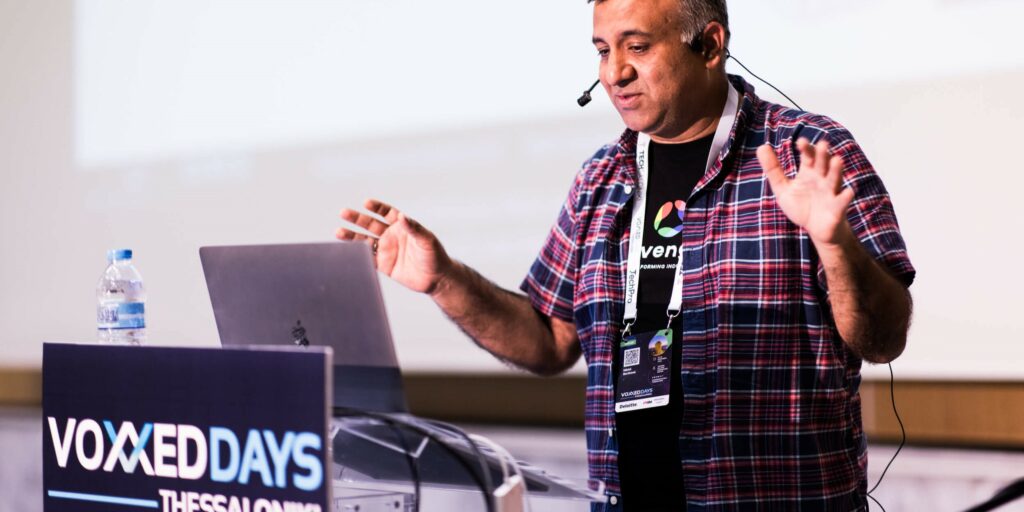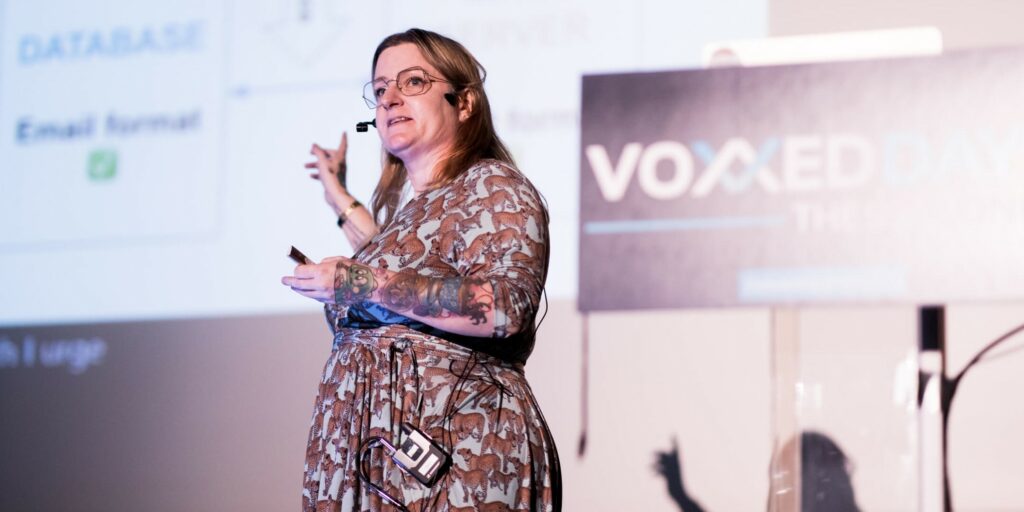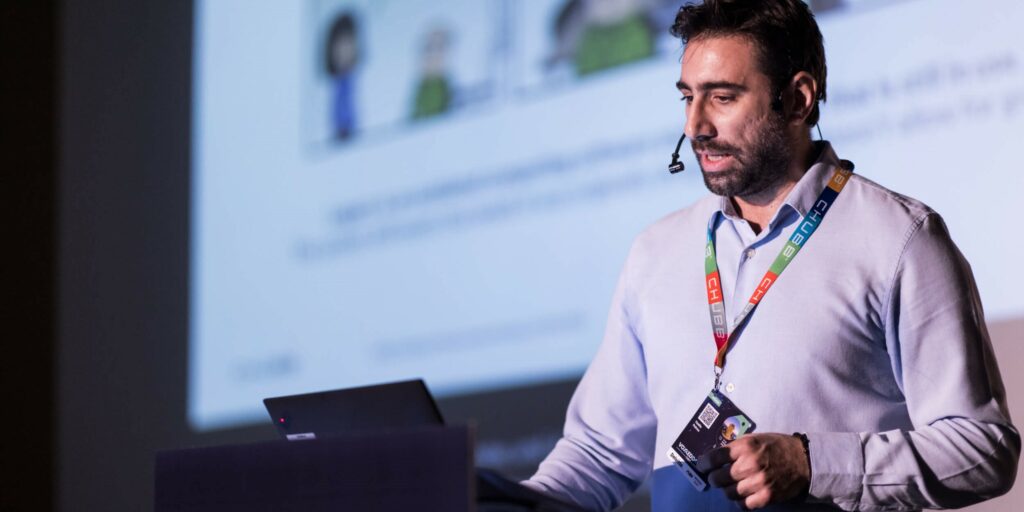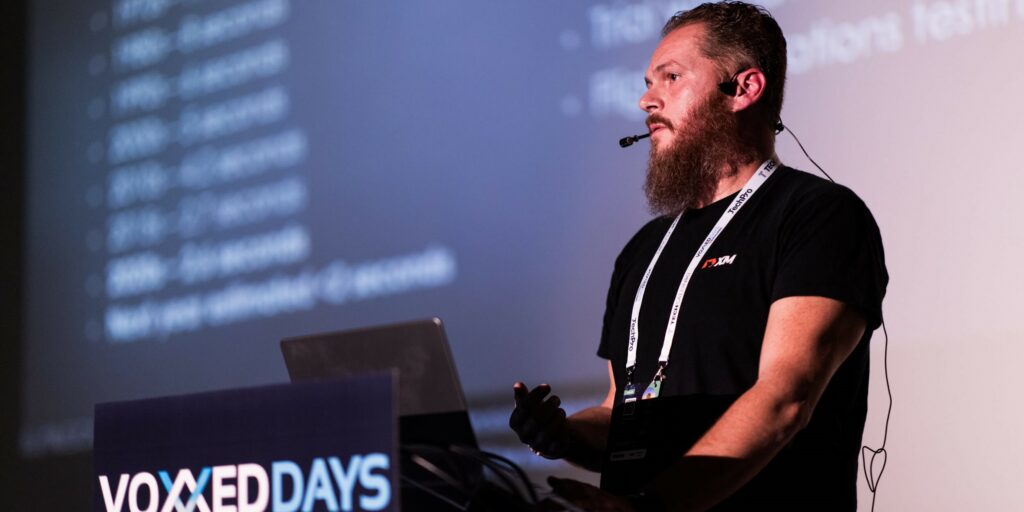Voxxed Days Thessaloniki 2023: Day 1 Highlights
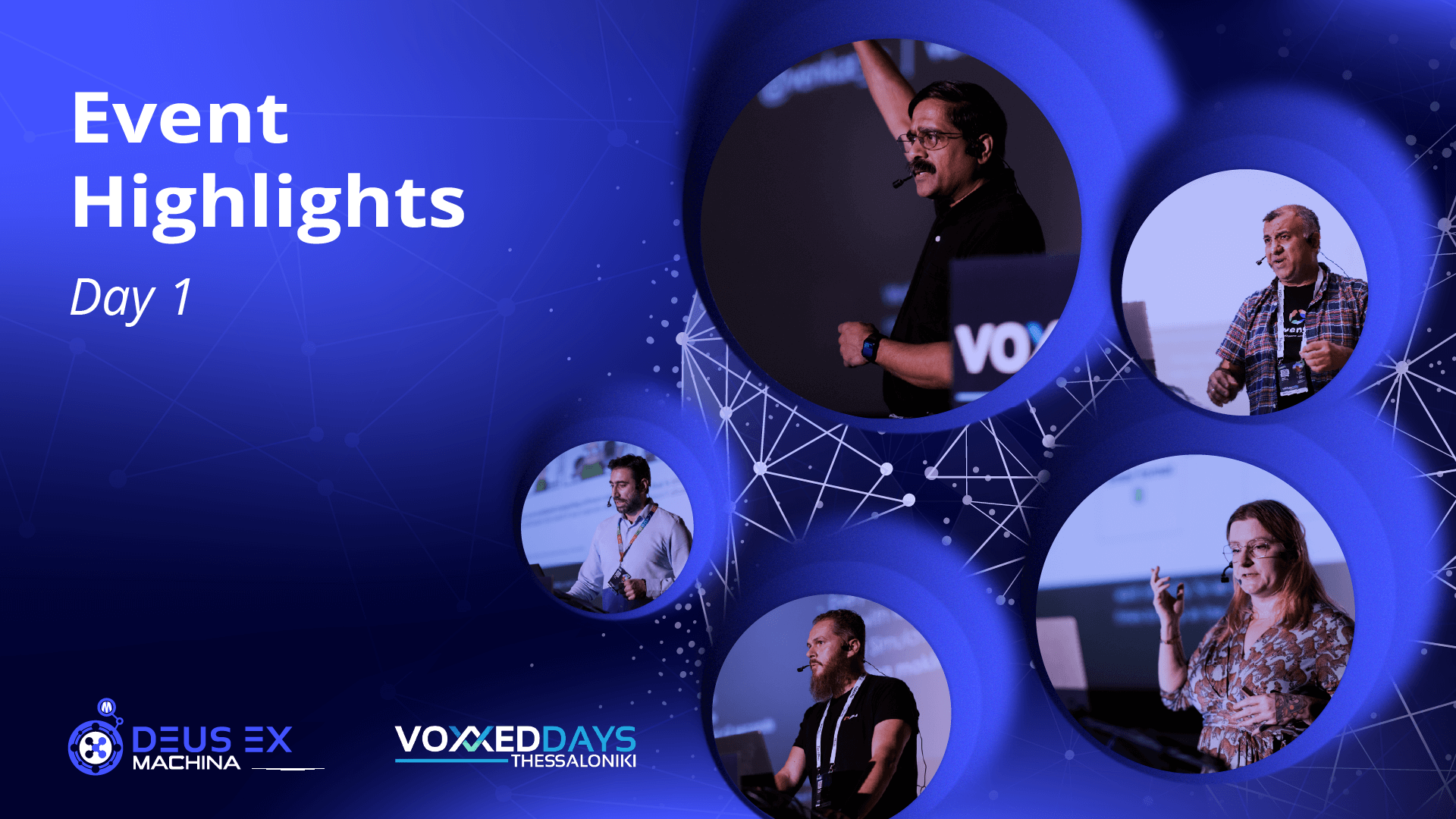
Day 1: Friday, November 24, 2023
Voxxed Days Thessaloniki 2023 marked a significant event for Thessaloniki – it was a tech party full of insights and discussions. For us, it provided an incredible opportunity to connect with fellow professionals, exchange ideas, and delve into the latest trends in the tech world.
More than 10 sessions over two days packed with insights and interesting takes had us wanting more. Our very own, George Ouzounis, Enterprise Architect at DEUS, brings you a distilled overview and commentary of key takeaways for the Greek tech community.
Session Highlights: Day 1
1. Don’t walk away from complexity, run by VENKAT SUBRAMANIAM
Watch the full session on YouTube
In this talk on code complexity, the speaker emphasized tackling complexity head-on and identified two types: domain and accidental. The key takeaways:
Causes of Complexity:
- Microservices caution: Handle with care to avoid unnecessary complexity.
- Invisible changes: “Don’t sneak around and change state”. The code should be self explanatory.
- Minimize states and dependencies, reduce mutability to achieve maintainability.
Conclusion:
- Embrace change, manage complexity, and give your future self a maintainable code base.
2. Implementing Cloud Native CI/CD by NIKHIL BARTHWAL
Watch the full session on YouTube
This insightful talk focuses on tools such as GitOps, ArgoCD, Tektop and JenkinsX showcasing their role in implementing Cloud Native CI/CD. The speaker underscored several reasons for embracing Cloud Native CI/CD utilizing the aforementioned tools:
- Container Necessity: Traditional CI/CD tools lack first-class support for containers.
- Immutable Infrastructure Demand: Recognized the need for infrastructure that remains unaltered.
- Declarative Pipeline Definitions: An easy and straightforward way to create and maintain pipelines.
- Kubernetes Integration Requirement: Out of the box integration with Kubernetes allows for easy adaptation in many projects/products.
- Dynamic Agents for Multi-Cluster Solutions: Multi-cluster and even multi-cloud support through dynamic agents allows for needed flexibility.
- Optimized Resource Utilization: Advocated for efficient resource usage, keeping servers alive only as long as needed.
3. Deciphering alerts: Make sense of what your software is saying by LENA NYSTRÖM
Watch the full session on YouTube
In this talk, the focus was on unraveling the intricate messages generated by a system, spanning from the database to the user interface (UI). The core idea is that those messages are telling a story to their reader about what happened in the system and are often required to meet criteria that usually clash such as:
- Guide vs. Debug: Messages need to guide users in problem-solving while also enabling engineers to debug efficiently.
- Security vs. Information: Must not leak sensitive data yet provide necessary information for the reader.
- Cross-Service Information: Messages should traverse services and systems seamlessly.
Actions for Engineers to Enhance Message Quality:
- Context Awareness: Recognize context loss between services and systems.
- Cross-Disciplinary Learning: Expand knowledge beyond the engineering scope, such as understanding UX and accessibility.
- Ecosystem Error Caution: Acknowledge external errors (e.g., a 3rd party service is down) impacting user perception.
- Contextual Message Crafting: Consider context for a balanced approach – secure yet informative, inclusive, and with minimal friction for users.
4. Building a modernization strategy by VASILIS PETROU
Watch the full session on YouTube
In this concise 15-minute talk, the speaker resonated deeply with our past experiences. The discussion was centered on strategies for migrating and expanding legacy code bases while maintaining seamless system operations. Three key approaches were outlined:
Cold Turkey:
- Pros: Eliminates concerns about intermediate states during refactoring.
- Cons: Prolonged offline period, impacting availability.
Duct Tape:
- Pros: No migration needed.
- Cons: Error-prone, low flexibility, potential future refactoring required.
Gradual Replacement:
- Pros: No downtime, ensures a fully-refactored system in the end.
- Cons (from experience): Mentally and emotionally taxing; akin to navigating a never-ending dark tunnel with unforeseen challenges.
8. Chaos Engineering: The good, the bad and the ugly by CHRISTODOULOS XYSTRAS
Watch the full session on YouTube
Christodoulos Xystras delivered one of the most captivating talks at the event, unraveling the application of chaos engineering in system testing. The talk’s essence:
Chaos Engineering in Action:
- Simulating crises to proactively identify system and team gaps before they become major incidents.
- Example: European traffic servers go offline.
Experiment Process:
- Steady State: Ensure system stability.
- Hypothesis: Define a scenario (e.g., European traffic servers go offline).
- Actions: Prescribe specific steps.
- Review Behavior: Analyze system response.
- Gather Evidence: Collect comprehensive logs.
- Takeaways and Future Actions: Determine learnings and plan improvements.
Success Factors:
- Clean infrastructure, updated diagrams, system uniformity.
- Thorough testing, control measures, and well-trained teams.
Persuasion Tactics for engineers to promote Chaos Engineering:
- Emphasize industry adoption.
- Highlight team training benefits.
- Run a Proof of Concept in non-production environments.
- Demonstrate value through post-mortem reports.
Day 1 at Voxxed Days Thessaloniki 2023 unfolded as a symphony of tech wisdom, weaving innovative threads from deciphering software messages to mastering modernization strategies.
The concept of chaos engineering added an exciting twist, urging us to embrace a bit of controlled chaos for a stronger system. Stay tuned for Part.2.
